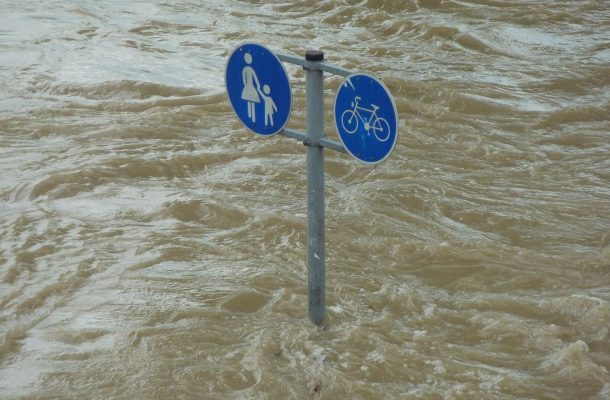Hope for the best, prepare for the worst

The current flood crisis has been catastrophic for the thousands of residents affected and has caused, regrettably, the loss of over twenty lives. As difficult and financially daunting as it may appear for the flood victims at the moment, perhaps I can offer some slight comfort in assuring you that you’ll look back in pride in five- or ten-years’ time on how well you coped with what appeared to be monumental financial and personal property loss.
Part of the trauma of enduring such an event is the desire to assign blame to someone or something beyond the event itself. While assistance may have appeared inadequate or belated, for example, such is the staggering area affected that not every region, town or property can be helped simultaneously.
It will require patience and tolerance, and time will seem to drag by, but you will get through this, and help will be forthcoming. Cyclone victims in the nation’s north know the ropes and appreciate the destruction which natural disasters bestow.
Flood Plain Follies
If blame is to be placed on anyone for these devastating floods, then local councils must shoulder their share for allowing additional building and sub-divisions on flood plains which will inevitably be inundated during serious storm events. These councils view additional housing and residents as a useful source of property tax revenue, but the costs of recent disasters far outweigh the benefits.
Our pioneers often built communities in the wrong places but, after flash flooding events, had the sense to uplift and relocate entire townships, rather than face such dangers again. However, the only recent example of such a sensible response was at Grantham in Queensland.
Whilst it may appear desirable to live alongside a river or stream, the view loses all attraction when the property is submerged. After the 1974 Brisbane Floods, many areas were zoned to remain free of human habitation, but councils eroded these rules under pressure from developers, and the results are plain to see.
The real problem lies at all levels of Government when officials are not held personally responsible for their mistakes. They certainly should be, rather than promoted and reallocated elsewhere.
Australia needs a National Guard
On a broader scale, I would also question, whether the Federal Government has done enough to prepare for such natural disasters. I believe the answer to that is an unequivocal no. We need a larger cohort of trained people to assist when such disasters strike, and a greater level of skills in the general population.
While they have performed tremendously well through a series of natural disasters, we should not and cannot expect our professional regular service personnel to undertake these tasks. Our Defence forces should not be tied down to duties other than this nation’s defence on a regular basis.
Over past decades, I have therefore lobbied the Prime Minister’s Office by letter to re-introduce compulsory national service for all men and women of 18 years of age, and all new residents and immigrants to Australia. This period would be served within the confines of Australia’s borders and constitute an Australian National Guard.
Such a proposal has not proved politically popular, as politicians fear that compulsion would lose them votes and perhaps office. I disagree, indeed, far from baulking at the responsibility, many people might choose to remain after the completion of their National Service and join the full-time ADF, perhaps also gaining a trade qualification.
More importantly, an Australian National Guard is becoming a strategic necessity which trumps short-term political calculations, as full military training would not only create a major natural disaster response capability but also a significant military reserve.
We may very well soon need a large secondary trained reserve force. Wars throughout history have waged to win resources, and Australia’s rich mineral deposits offer a tempting prize for its potential adversaries.
I truly wish the flood victims my every best wish, whilst you await assistance and contemplate your future. You simply cannot keep an Aussie down, you will rise to the occasion, but it will take time to climb that stairway back. Look around, talk with your neighbours, and simply breathe. You have the rest of your life to look forward to, and, once these clouds roll away, it will be bright.

After serving in the Royal Australian Navy, Bob Ford ran charter and fishing vessels and wrote for fishing and boating publications until retiring in 2008. Married with three children and six grandsons, his hobbies include sailing and lawn bowls.















